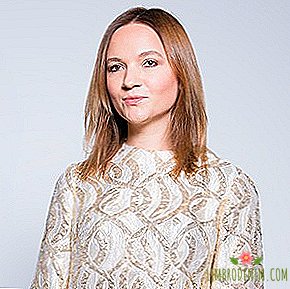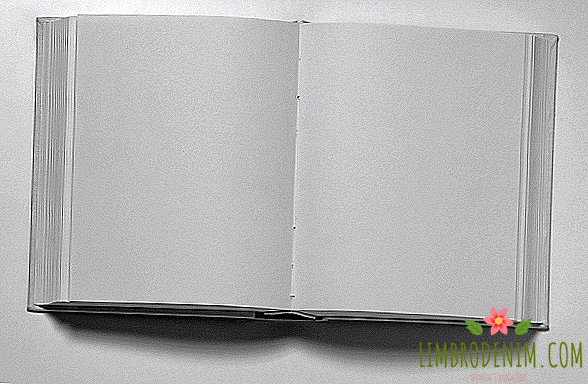Instructions: How to make important decisions

alexander savina
We already toldwhy in the modern world, overloaded with minor issues, it becomes more and more difficult for us to make decisions - and how to cope with fatigue so that you have time for something really important. You probably already know the basic rules: plan more (so you don’t have to be tormented every night, go to the gym or not), deal with important issues with a fresh head and full stomach, and if the choice is not very important, but you don’t want to waste time - put imagine a time limit and act. Now we understand how to act if you have a difficult question.

Do not rely too much on others.
Finding the opinion of others before making an important decision is a normal practice: everyone sometimes needs an outside view, especially if it is not possible to comprehensively and objectively assess the situation “from the inside”. Another thing is that in the pursuit of finding out the opinions of others, there is always the risk of forgetting about your own desires and arguments. No matter how valuable the advice of friends, colleagues and loved ones is, it is your life and your own choice - only you know what is more important to you in relationships or work. Remember that the final decision is always yours: ask others to understand where you can be biased, but do not forget that you will have to live with the consequences.
Do not look for signs
The decision-making balls appeared for a reason: many of us are so afraid of decisions and their consequences that they are ready to place responsibility on fate or to look for signs that prompt the right answer. The problem is that not a single “sign” can predict what your actions will turn out to be and how the decision will affect your life. Instead of hoping for randomness, it is better to analyze how you feel about signs. Are you glad that the universe has thrown you this or that solution - or vice versa? Perhaps, deep down you already know the answer and are just looking for confirmation from above.

Do not overdo it
In pursuit of the ideal solution (especially if it is a global choice - changing jobs, moving to another country or parting with a partner), we often stop at the stage of searching for arguments and continue to sort out the pros and cons of each option. Often, we persevere in weighing the pros and cons, not because we don’t know what choice we would like to make - but because we are afraid of responsibility, the possible consequences of each of them and the lost opportunities.
Peter Bregman, CEO of Bregman Partners Inc. Bregman Partners and the author of the book on effective decision making “18 minutes” advises using the “if / that” algorithm: “Imagine, for example, a situation that someone interrupts you constantly and you do not know how to react to it. In this case my rule would be: if a person interrupts me twice in a conversation, I will make a remark to him. " Bregman believes that this method is needed to simplify spontaneous decisions, but this does not prevent us from using it in more global situations. For example, if you choose to change jobs or not, you might think what awaits you if you stay in the current company (is there a growth prospect here?), And what could be the situation in the new one (maybe you will not get away with the new leadership and colleagues?) - perhaps after this the future will cease to seem so vague and frightening.
Resist the authority of parents
This item is close to the issue of advice from relatives and friends, but still differs from it. We are accustomed to thinking differently of parents: there is at least one weighty advantage on their side — life experience. But it can also be a problem: the installations that helped your parents do not necessarily fit you. Relatives may not like that you choose a "non-female" profession or freelance instead of a stable office job - but this does not at all mean that you are wrong.

Do not be afraid to trust intuition
In making serious decisions, we are accustomed to rely on the facts: if you take a piece of paper before each responsible decision and methodically list the pros and cons of each decision, and then spend two hours in Google’s open spaces, you understand what it is about. Nevertheless, the intuitive approach to solutions can be no worse. Brand and marketing strategist Alex Hanisett advises you to trust your instinct more if you have several equally attractive options: "To turn on the intuitive sensations, stop for a moment and don’t think about anything. Go away for a short time where no one will bother you and think about the decision What feelings do you have? Joyful? Or disturbing? "
Assess the risks, but don't let fear control you.
In addition to new features, you need to assess the dangers that each of the options implies. Think about the risk that each of the options carries for you and which one is safer. True, one should not be guided by one fear in making a decision: instead of immediately and unconditionally choosing the “safe” option, it is better to think about whether risks can be minimized - and whether less stability can bring bonuses.
For example, if you would like to go to freelancing, but you can’t decide on it, start with a calm assessment of all the pitfalls: can you find the right number of customers? Do you have enough fees for a quiet and comfortable life, given that now nobody will pay for insurance and sick leave? What is more important for you - the opportunity to work from home and convenient schedule or a stable income? All this, of course, does not mean that there is no need to worry about risks at all - just any advantage should justify the risks.

Do not be discouraged if something goes wrong
The best advice for those who can’t make a decision seems to be: "Just pick one and relax." Unfortunately, it is impossible to accurately predict all the possible consequences of our actions - it only remains to come to terms with a certain amount of uncertainty in life. In addition, the choice between equally attractive options leads to two equally pleasant scenarios (in one you went to the exhibition on Sunday morning and were pleased with it, in the other you spent the weekend in beds with the show and had a cool rest) - and still will have to sacrifice.
According to the philosopher Ruth Cheng, who is involved in decision-making, the choice becomes difficult when each of the options is good in its own way - but not so much that we throw the second one off. Cheng believes that in such cases decisions are "on a par". In one universe, you decide to go to work in another country, leaving relatives and friends here, in the other you stay at home, but refuse any career prospects. The advantages of one option (new experience in a foreign country) do not correlate in any way with the advantages of another (relatives and close ones).
In such a situation, there is simply no “right” and “wrong” decision - which means you should not be so afraid of mistakes. “When we are faced with a difficult choice, we don’t have to break into a cake trying to figure out which option is better. There is no better option. Instead of looking for reasons outside, look for reasons inside: who do I want to become? You can become a banker living in the country, who loves pink socks and cereal for breakfast. I am a city artist who prefers black socks and donuts for breakfast. How we behave in difficult choices depends only on us ourselves, "says Ruth Cheng.
Photo: rangizzz - stock.adobe.com, rnl - stock.adobe.com, Richard Griffin - stock.adobe.com, fotomaximum - stock.adobe.com




